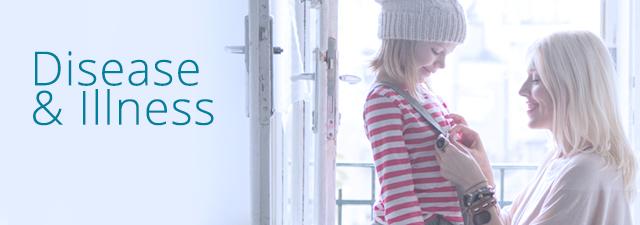Algoma Public Health
Meningococcal Disease
What is it?
- An infection of the tissue covering the brain and spinal cord (meningococcal meningitis)
- Or, it can also cause an infection in the blood (meningococcemia).
- It is rare and can cause serious disease.
What are the symptoms?
- Sudden onset of fever
- Severe headache.
- Nausea and often vomiting.
- Stiff neck.
- Confusion and irritability
- Sensitivity to light (photophobia)
- Rash
- Infants may also have irritability, difficulty waking, difficulty feeding and a bulging fontanelle.
Related Documents
Contact Us!
Sault Ste. Marie: 705-942-4646
Blind River: 705-356-2551
Elliot Lake: 705-848-2314
Wawa: 705-856-7208
How quickly do symptoms develop?
- Usually within 2 to 10 days, commonly 3 to 4 days after contact with an infected person.
How is it spread?
- By direct contact with oral secretions, including respiratory droplets, from the nose and throat of infected people.
- Through saliva by close face to face contact, usually by kissing or sharing food, drinking glasses, water bottles, eating utensils, and cigarettes or other items that have been in the mouth of a person with the disease.
How long is it contagious?
- Up to seven days before becoming ill and until 24 hours after starting the appropriate antibiotic.
How is it treated?
- With an antibiotic
- An antibiotic is often recommended for close contacts to prevent them from getting sick and spreading it to others. All household members of an infected person are considered close contacts as well as certain other individuals. Those who have not had close, personal contact do not require any preventative treatment. Public health ensures that anyone close contacts are appropriately followed up with. In some cases a vaccine will also be recommended.
What can you do?
- If you have been exposed to someone with meningococcal disease and develop symptoms within 10 days of last seeing them, see a healthcare provider immediately. Make sure your child is up to date with immunizations. There are vaccines available that provide protection against the different types of meningococcal disease.
- If travelling outside of Canada or U.S.A. check with local public health regarding vaccination recommendations.
- Do not share personal items, including eating utensils, food, water glasses, water bottles or cigarettes.
- Practice good hand washing.
For further information contact Infectious Disease at 705-942-4646 or toll free at 1-866-892-0172.
Date of Creation: June 1, 2015
Last Modified: Jan 27, 2019










